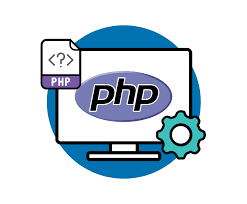- info@einnovention.us
- THIS SITE IS OWNED AND OPERATED BY MUHAMMAD AATIF NADEEM.
Hire PHP Developer

Title: The Art of Hiring a PHP Developer: Your Ultimate Guide
In the dynamic world of web development, PHP (Hypertext Preprocessor) stands as a robust and versatile scripting language. Powering countless websites and applications, it has cemented its position as a staple in the development community. If you're embarking on a new project that requires PHP expertise, the process of hiring a PHP developer can be both exciting and challenging. This guide aims to equip you with the knowledge needed to find the right PHP developer for your project.
1. Understanding the Role of a PHP Developer: Before you dive into the hiring process, it's essential to understand what a PHP developer does. PHP developers specialize in writing server-side code for web applications, handling databases, and ensuring the smooth functionality of websites. They create dynamic and interactive web pages that provide users with a seamless experience.
2. Define Your Project Requirements: To ensure a successful hiring process, start by defining your project's requirements. Understand the scope, features, and technologies you'll need. Will your project involve building an e-commerce platform, a content management system, or a custom web application? The clearer your vision, the easier it will be to find a PHP developer whose skills align with your needs.
3. Assess Skills and Experience: When evaluating potential candidates, consider their skills and experience in the following areas:
- PHP Proficiency: Look for developers with a strong command of PHP, including knowledge of its latest versions and features.
- Frameworks and CMS: Familiarity with popular PHP frameworks like Laravel, Symfony, or CodeIgniter, as well as content management systems like WordPress, can be valuable.
- Database Management: Your PHP developer should be adept at working with databases, including MySQL, PostgreSQL, or MongoDB.
- Front-End Integration: Basic front-end skills (HTML, CSS, JavaScript) are often required for seamless integration of the back end with the user interface.
- Version Control: Experience with version control systems like Git ensures efficient collaboration and code management.
4. Portfolios and Past Projects: Reviewing a candidate's portfolio and past projects can give you insights into their work style, problem-solving abilities, and the quality of their code. Look for projects that align with your needs and demonstrate their expertise.
5. Communication and Team Fit: Technical skills aside, effective communication and the ability to work well within your team are crucial. Look for candidates who can clearly articulate their ideas, ask insightful questions, and collaborate seamlessly with designers, front-end developers, and project managers.
6. Remote vs. On-Site: Consider whether you're open to hiring a remote PHP developer or if you prefer someone on-site. Remote developers offer flexibility, but effective communication and time zone coordination becomes more critical.
7. Screening and Interviews: After shortlisting candidates based on their resumes and portfolios, conduct thorough interviews. Ask them about their experience, how they approach problem-solving, and their familiarity with your project's requirements. Technical interviews or coding assessments can help assess their hands-on skills.
8. Test Projects or Assignments: Consider giving short test projects or assignments to assess candidates' abilities further. This provides a real-world simulation of their work and can help you gauge their problem-solving skills, coding practices, and attention to detail.
9. Cultural Fit and Soft Skills: Beyond technical skills, consider a candidate's cultural fit within your organization. Assess their adaptability, willingness to learn, and attitude toward challenges. Soft skills like teamwork, time management, and a proactive attitude can significantly contribute to a successful project.
10. Negotiation and Compensation: When you find the right PHP developer, discuss compensation and contract terms openly. Compensation should reflect their skills, experience, and the complexity of your project.
11. Continuous Learning: Lastly, remember that technology is always evolving. A good PHP developer will demonstrate a commitment to continuous learning, and staying updated with the latest trends and advancements in the PHP ecosystem.
Conclusion: Hiring a PHP developer requires a thoughtful approach. By understanding your project's needs, assessing skills and experience, evaluating portfolios, and considering cultural fit, you'll be better equipped to find a PHP developer who can bring your vision to life. Keep in mind that the right developer is an investment in the success of your project and the growth of your digital presence.

